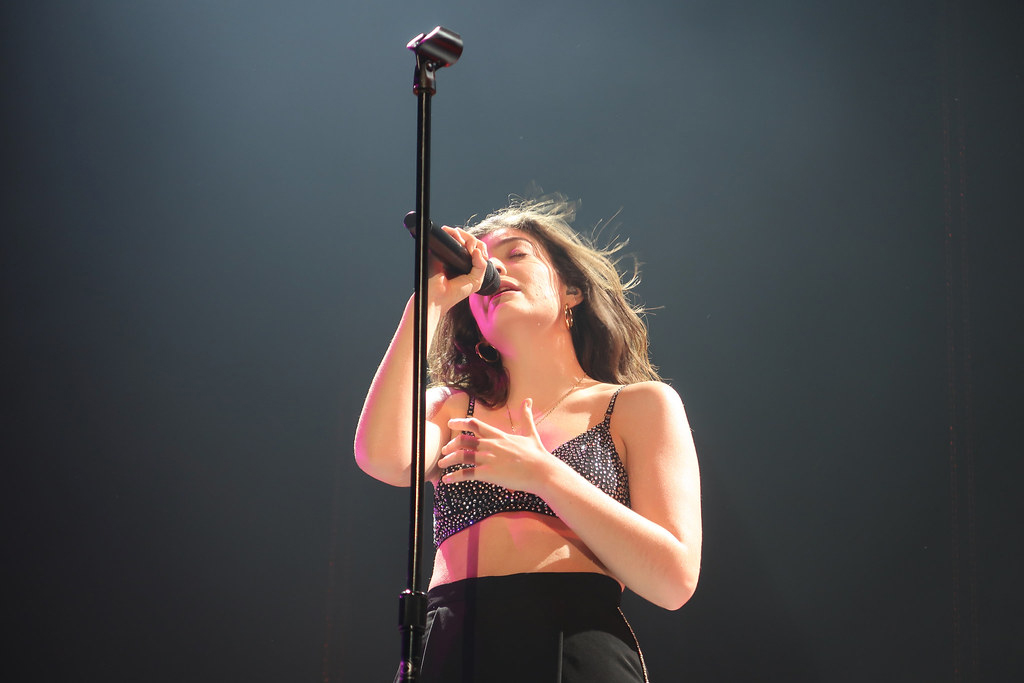Situated in the bustling Union Market District, the vibrant, patterned storefront of Byrdland Records makes a striking impression. The narrow store manages to house over 5,000 new and used records, featuring music curated by Washington artists. In the store, customers can also find turntables, speakers, cables and storage dedicated to enhancing their music experience.
For co-owners Alisha Edmonson and Joe Lapan, Byrdland Records is not their first small business endeavor in vinyl music, as they launched their first record store, Songbyrd Records, in 2015. The names of both venues are inspired by the jazz legend Charlie Byrd, who performed in Songbyrd’s Adams Morgan location back when it was home to the Showboat Lounge jazz club.
Offering a contrast to Byrdland’s more commerce-oriented business, Songbyrd is home to a spacious venue hosting live music, a restaurant and a bar. Byrdland is aimed more towards people looking to purchase records rather than listen to live music.
“At Songbyrd, because there’s all these other things going on, it was never a space where you could stop what you’re doing in the cafe and play with a record player and show someone how it works,” Edmonson said in an interview with DCist.
The duo’s commitment to the Washington community extends beyond their businesses. They work with renowned chef José Andrés’ World Central Kitchen, a nonprofit helping to address global food insecurity and provide disaster relief, and they also operate the Byrdmobile, a mobile platform for live performances that makes tours around Washington.
The store’s efforts also support local artists and businesses. “We want to do parties for local musicians putting vinyl out, clothing pop-ups at Songbyrd, etc.,” Edmonson explained in an interview with the District Fray. “I feel like we’re so lucky to still be here, so how do we give back in ways we can? We have space and we have community.”
Lapan echoed this sentiment in an interview with Think Local First D.C., commenting, “It really is important to support and work with our fellow small businesses … to support each other financially, economically, and just take advantage of the fact that we’re all here together and just circulate our dollars, circulate our energy, amongst each other.”
With modern technology’s convenient, cost-effective and digital alternatives to vinyl, Byrdland’s role in the music industry and scene seems like it would become less and less relevant. However, even during the pandemic, Byrdland’s sales never dwindled.
Lapan explained the strange phenomenon of the continuing appeal and importance of vinyls in the District Fray, stating, “The opportunities for the art and the packaging make it more interesting and collectible. When you’re able to trigger people’s ideas of visible and physical art, you’re able to tap into a whole thing beyond a product which is more about lifestyle, identity and what represents you.”
Analog music has been significant throughout both Lapan’s and Edmonson’s lives, though not necessarily through vinyl.
“My formative musical experiences were actually more around tapes and CDs with my friends,” Lapan said. “I’m a kid of the late ’80s and early ’90s. I remember going to the ‘record store’ and trading tapes and CDs.”
For Edmonson and Lapan, creating a music business also serves the purpose of offering a place for people to experience music together in a physical place.The modern trend of music being restricted to a purely digital and isolated field is antithetical to what they see as the primary purpose of music: to bring people together.
In the District Fray, Edmonson reflected on the significance of analog music and its communal impact. “Years before we opened [Songbyrd], I remember telling Joe how lucky we were that we grew up without digital and that our friends and I had communal experiences with music,” he remarked.
By balancing their passion for music with a commitment to community and culture, Edmonson and Lapan have worked to create a testament to the enduring power of music to connect, inspire and uplift.











































